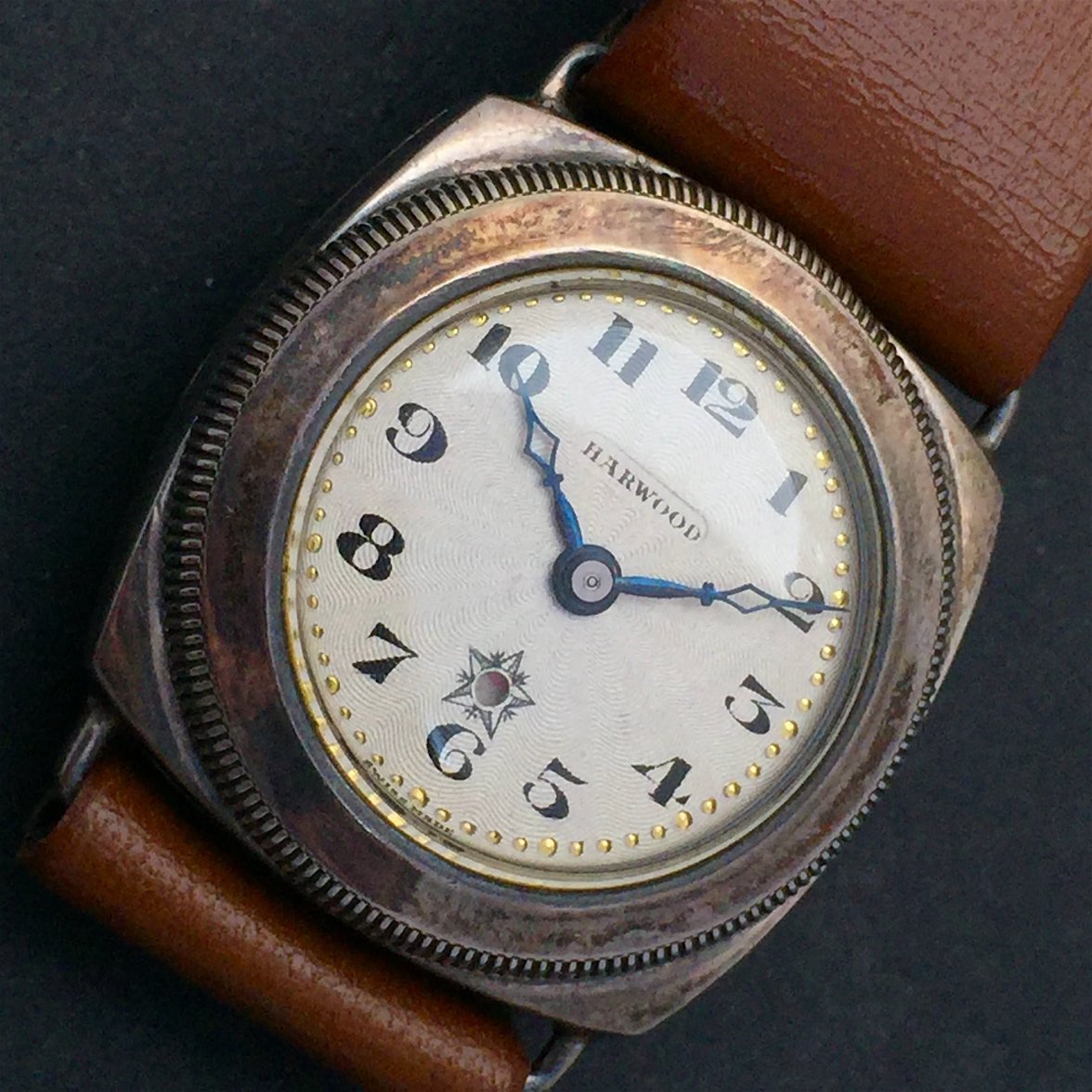A J
·John Harwood invented the self-winding watch in the 1920s. The movement is the forerunner of the Omega "Bumper" movement. Harwood had difficulty getting a manufacturer to make his watches until Fortis agreed to make them. Another interesting development Harwood incorporated in his watch was the lack of a crown. Harwood tried to eliminate dust from the interior of the watch by removing one of the weak points i.e the crown stem. To indicate the method of altering the hands, I've created a short video. On the dial of the watch is a red spot that indicates that the alteration clutch is disengaged. The bezel is rotated in the direction you want the hands to move and after alteration is complete, the bezel is rotated in the opposite direction until the red spot appears again. The creaking noise is from the leather strap.

